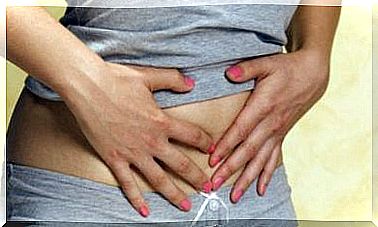Antidepressants And Alcohol: The Effects Of Mixing Them
We do not yet know the exact interaction between antidepressants and alcohol. It often depends on the amount of alcohol consumed or the type of antidepressant.
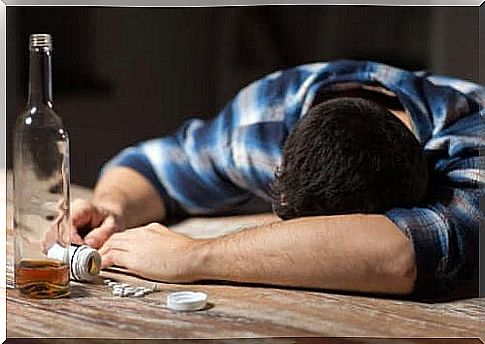
Many people combine antidepressant drugs and alcohol without realizing that this combination of substances can have serious health consequences.
In addition, 15% of people who suffer from an affective type disorder are addicted to alcohol. Which worsens the situation.
What are antidepressants?
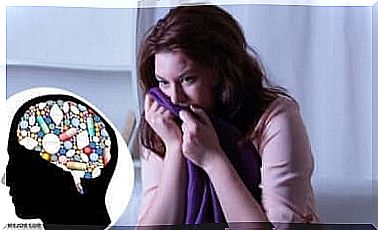
Antidepressants are a widely used treatment option for depression, a condition that affects 15% of the population.
In the body, we have substances called neurotransmitters which are responsible for transmitting signals. One of these substances regulates mood and its deficiency leads to depression. This is serotonin, although it is not the only one involved in this disease.
Therefore, antidepressants aim to increase the concentration of these neurotransmitters in the body and therefore, to reverse the pathological mood.
There are different types of antidepressants like:
- Selective Serotonin Reuptake Inhibitors (SSRIs).
- Serotonin and Norepinephrine Reuptake Inhibitors (SNRIs).
- Atypical antidepressants.
- Tricyclic antidepressants.
- Monoamine oxidase inhibitors (IMAOS).
What are their effects?
Although they all have a different mechanism of action, they are all designed according to the purpose described. Among the side effects that they can produce in the body we can mention:
- Fatigue and drowsiness.
- Nausea.
- Insomnia
- Dryness in the mouth.
- Blurred vision.
- Constipation.
- Restlessness, worry and anxiety.
The risks of combining antidepressants and alcohol
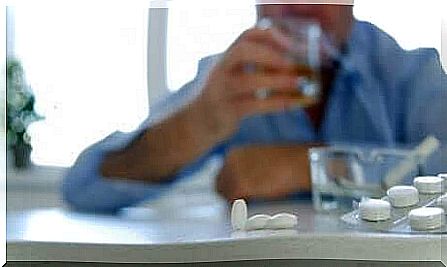
We don’t yet know the exact interaction between alcohol and antidepressants. This often depends on the amount of alcohol consumed or the type of antidepressant used.
For example, selective serotonin reuptake inhibitors, as mentioned earlier, increase the concentration of this neurotransmitter by preventing its reuptake. On the other hand, alcohol also increases serotonin levels, albeit temporarily.
For example, a person who takes antidepressants and drinks alcohol may have too much serotonin in the brain. And, therefore, to develop serotonin syndrome.
What is Serotonin Syndrome?
As we have commented, this is a clinical setting manifested by excess serotonin. Its severity is very variable and depends on the cause.
This syndrome is characterized by the fact that the patient suffers from worry, restlessness, high blood pressure, muscle spasms and diarrhea. Likewise, in major cases, the patient’s life may be in danger.
On the other hand, if alcohol consumption is chronic and prolonged, it can lead to low levels of serotonin. The reason is that our body adapts to psychoactive substances through a phenomenon known as addiction.
Thus, by getting used to the ingestion of alcohol, depressive symptoms appear because the available serotonin decreases. In addition, in the event of alcohol combined with taking antidepressants, the results are poorer and do not have the same effectiveness.
Effects of the combination of antidepressants and alcohol
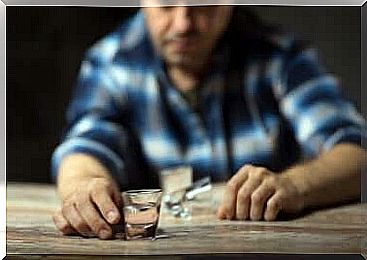
The resulting effects of this mixture of substances are an aggravation of the adverse effects of antidepressant drugs. Here are some examples :
- Worsening of the depressive framework: Consuming alcohol can counteract the beneficial effects of antidepressants, making it more difficult to treat symptoms.
- Decreased cognitive activity: Alcohol affects coordination, thinking and reaction times. Therefore, the combination of these two substances accentuates the effects of antidepressants on the central nervous system.
- Sedative Effects: Some antidepressants can cause drowsiness. This effect is also characteristic of alcohol. Mixing alcohol and antidepressants can intensify the sedative effect. You have to be especially careful when driving, for example.
- Risk of death: of course, this is the most serious consequence of the combination of antidepressants and alcohol. This risk may arise as a result of a severe setting of serotonin syndrome.
Conclusion…
Consuming antidepressants and alcohol can have serious consequences. In the event of treatment with this type of medication, it is essential to talk to your doctor about your alcohol consumption, or if you suffer from a particular pathology. The consequences can indeed be fatal.



